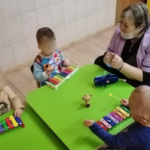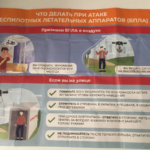Putin-style “Language Diversity”: Who Is to Blame?

Under Putin’s rule, not only the languages, which were already on the verge of extinction, but also the languages of the peoples whose names the respective republics are named, began to disappear. Could this be due to the defeat of national education in these republics since Putin’s submission in 2017, when the study of local state languages of these republics was removed from the compulsory curricula of their state schools? Columnist of “Idel.Realia” Harun Sidorov
In general, given Putin’s specific, let’s say, attitude to his words, many around the world have long developed an approach: to look not at what he says, but at what he does. That would be reasonable in this case too, because the difference between his statements about the need to preserve Russian linguistic diversity and support national languages and the real state policy pursued under him is radical. Moreover, this follows from the conclusions and data of Russian experts and censuses.
For example, in an interview from 2020, Olga Kazakevich, head of the Laboratory of Research and Preservation of Minor Languages of the Institute of Linguistics of the Russian Academy of Sciences, stated that over the past decades the indigenous peoples of Russia have lost ten languages. Moreover, according to the data given to her, four of them disappeared precisely during the years of Vladimir Putin’s rule: West-Mansian, Kerek, Oroch, and East-Mansian. Fifteen other languages were on the verge of extinction at the time of the interview: Aleut, Babin Sami, Vod, Itelmen, Yokan Sami, Karaim, Kolym Yukagir, Krymchak, Wiltin (Oroc), Mednov Aleut, Tazov, Tofalar, Tundra Enet, Chulym-Turkish, and South Selkup.
Strangely enough, it is advantageous for Russian officials who talk about preserving linguistic diversity to do so on the example of such disappearing languages. As sad as it may be, it is objectively difficult to preserve languages with the number of speakers from 2 as in the case of Aleutian (as of 2020), to 20 as in the case of Chulym-Turkish languages. And this allows, on the one hand, to pathetically declare the need to preserve such languages, on the other hand, to cultivate with hands – so, very much wanted to preserve them, but failed. What do you do, this is our legacy, and in general, such languages are in danger of extinction all over the world.
But what Russian officials, starting with the first, is extremely unfavorable to talk about, is that Russia is dealing with the languages of relatively large nations, which have objectively good potential for development. For example, with the language of Russia’s second largest nation, Tatar, the position of which automatically gives an understanding of what happens with the languages of smaller nations. In the 11 years between the last two population censuses, the number of Tatar speakers in Russia has decreased from 4,281,000 to 3,261,000, i.e. by 1,20,000 people, or by almost 24%.
Furthermore, while in 2010 there were 392,000 speakers of the Mordovian language (which in Russia officially includes Erzyan and Mokshan languages), according to the 2020 census only 220,000, i.e. 56%. And this is for the people (or group of peoples) who have their republic…
And what happened that, under Putin’s rule, not only the languages that were already on the verge of extinction, but also the languages of the peoples whose names the respective republics are named? Could this be due to the defeat of national education in these republics since Putin’s submission in 2017, when the study of local state languages of these republics was removed from the compulsory curricula of their state schools?
Putin himself, speaking to Tatar director Aydar Zabbarov, said the following: “What you say is very important, because there was a moment when, after the collapse of the Union, we in Russia have unfortunately lost a lot of support for national languages.”
Again, it turns out, the fault of the “disintegration of the Union”… And this despite the fact that after it in the same Tatarstan under the conditions of some, but republican sovereignty, Tatar language and culture were actively revived. And then Putin came to power and almost immediately in 2002 adopted amendments to the law on the languages of the peoples of Russia, which forbade them to use convenient graphics, obliging them to translate all languages into Cyrillic. And the disappearance of Tatar signs in Latin script in Tatarstan, where they were a kind of symbols of the national revival of the 90s, was the first step towards what is happening with Tatar (and other non-Russian languages) now.
However, we can agree with Putin on one thing. But this is not because the current decline of the languages of non-Russian indigenous peoples is blamed on the “breakup of the Union”, but because under his rule the position of their languages became worse than it was even under the USSR. The reason lies on the surface: although the language of the “big brother” was also introduced into the Union with a fairly hypocritical internationalism, yet all its peoples were not inspired to think that they were Russians.
The author of these lines, as a child, studied in one of the “Russian schools” of Baku and well remembered how, at the beginning of the school year, by mistake, a pupil whose family had moved to a new district was transferred to his class instead of a neighboring Azerbaijani school, and he did not know Russian at all, even at the level that allows him to communicate with his teacher and classmates. The situation was quickly resolved and the boy was transferred to a nearby Azerbaijani school. This was the case with the Union whose collapse Putin periodically complains about, and now the question is: is it possible in Putin’s Russia for a student of a school in any of the Russian republics from among its titular population to study and speak his native language, but do not know Russian? No, it is impossible, because Putin himself insisted on the compulsory study of the Russian language while the study of the republican state languages is not compulsory. Therefore, the opposite situation is widespread, when representatives of non-Russian peoples, students and speakers of Russian, do not know their own languages in their republics. This is the protection of linguistic diversity in action, not in words.


Leave a Reply